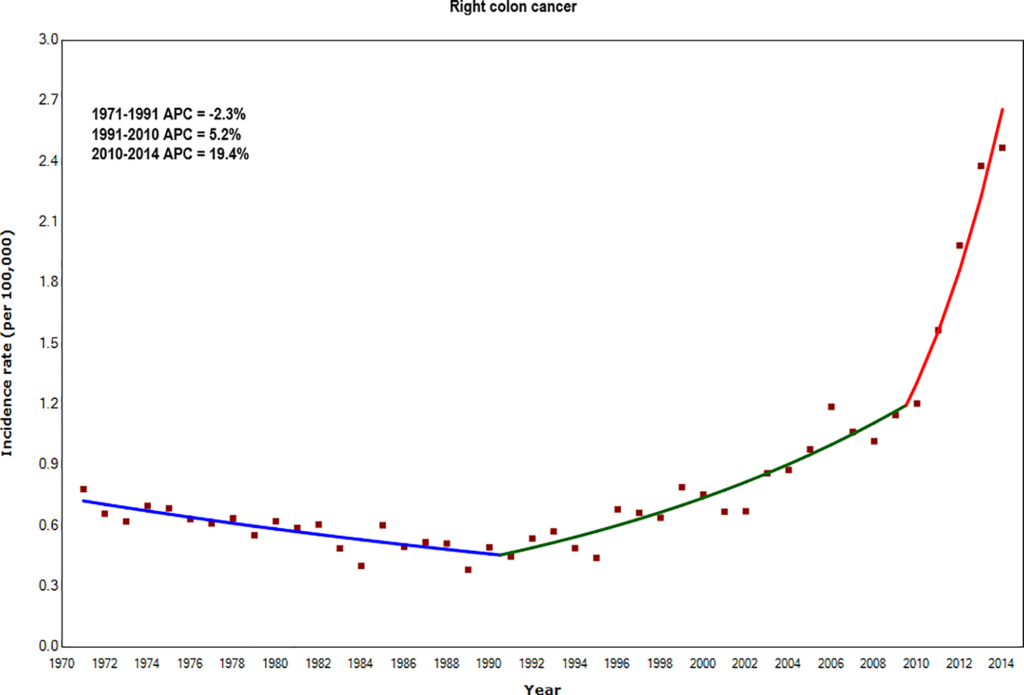Background
Cancer of the large bowel (colorectal cancer) mostly affects people aged 60 or over, but recent studies in Europe, North America and Australia have shown that it is becoming more common among younger adults, in their 20s or 30s.
We set out to investigate whether colorectal cancer is becoming more common among young adults in England, and if so, when the increase started, and whether particular sub-groups of the population are more affected than others, such as those living in affluent or deprived areas, based on their postcode. We also wanted to know whether any increase affected particular parts of the large bowel differently, such as the right side, the left side, or the rectum.
Methods
We used data covering 44 years (1971-2014) for the entire population of England. Over these 44 years, more than a million adults (20-99 years) were diagnosed with colorectal cancer. We calculated the “incidence rate”, which is the number of persons diagnosed each year per 100,000 population. We calculated the incidence rate separately for each age group and socio-economic group.
Results
As for many cancers, incidence rates for colorectal cancer are very low in young adults, and they increase rapidly with age.
Among adults aged 50 years or older, colorectal cancer incidence rates remained stable, or even fell slightly, during 1971-2014. Among adults aged 20–29 years, however, incidence rates have almost tripled since the early 1990s -an average increase of 8% per year. Among those aged 30-39 years, a similar increase has occurred since 2005. Among these two age groups combined (20–39 years), the largest average annual increase was for right-sided colon cancers, between 2010 and 2014. The increase in right-sided cancers has been more marked among people living in the more affluent areas of England.

Conclusion
Colorectal cancer is still rare in young adults, but clinicians and healthcare providers should be aware of the recent increase in incidence in adults in their 20s and 30s.
Young adults should also become more aware about possible “red-flag” symptoms, such as persistent changes in bowel function, rectal bleeding or abdominal pain, and seek professional help.
Author
Aimilia Exarchakou
Research Fellow

